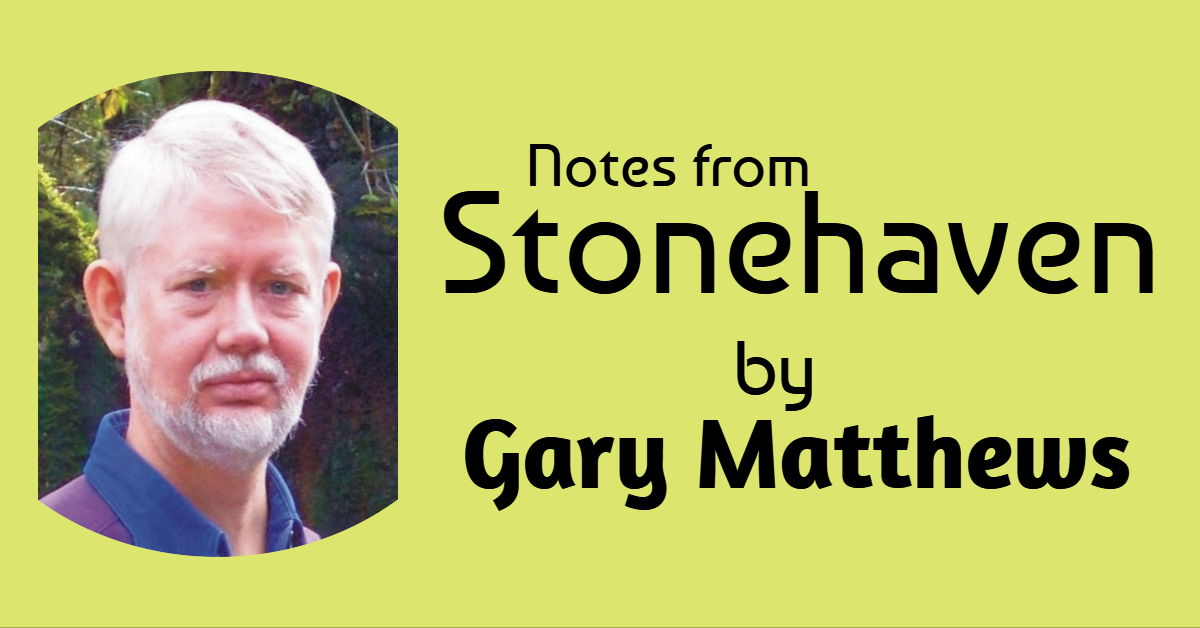Tag: worth 1000 pictures
-

Two Words: Preferred Pronouns
A while back I wrote about the “singular they” as used in contexts like the following: “If anyone has parked their car in the fire lane, they should move it.” “Someone finished off the banana pudding. Let’s hope they enjoyed it.” Quick recap: In such instances, we’re using the singular “they” (or perhaps relatives like…
-

One Word: Anachronism
An anachronism is something that doesn’t fit, time-wise or date-wise — a chronological inconsistency. It derives from the Greek “ana” (against) and “chronos” (time). It’s something appearing in, or being attributed to, a period other than that to which it belongs. Visualize, for example, a replica of that famous painting of George Washington crossing the…
-

Two Words: Crevice/Crevasse
These look like alternate spellings of the same word. But they aren’t. To be sure, they have similar meanings and similar pronunciations. I’ve always assumed they meant the same. I was mistaken. Here’s the scoop: The other night, at maybe 3 am, I was proofreading the all-new digital version of my 1998 book, The Metropolis…
-

Three Words: Another Think Coming (or is it “Thing”?)
Can common usage of a common word like “thing” be wrong — even when it’s grammatically correct? This question pesters people like me, worrying as we do about whether grammar “rules” should be prescriptive or descriptive. For some time lately, I’ve been hearing the expression “another thing coming”. As in: “If Hawkeye thinks it’ll be…
-
One Word: So
Reader Paul Ruff notes that “so” is replacing “like” as the all-purpose, meaningless word with which to start a sentence. We used to hear conversations such as: “Like, I’m going skydiving tomorrow.” “Like, wow, that’s awesome!” “Like, without a parachute!” “Isn’t that like, dangerous?” “Like, I’m using Google Cardboard, silly.” Today it seems we’re more…
-

One Word: Chemical
How I’d love to have a dime for every time I’ve heard someone express a liking for “chemical-free food” – or something similar. Let’s break this down: A chemical is any substance that can be defined by its atomic or molecular composition. That covers a lot of ground! Any element is a chemical, an element…
-

Two Words: Forbear / Forebear
We just discussed “forgo” and “forego”. The situation is similar with “forbear” and “forebear”. To forbear is to manifest great patience under extreme difficulty or suffering. “Forbear” is a verb. Its noun form is “forbearance”. A forebear is an ancestor. With that extra “e”, the word normally is a noun. Your forebears are your forefathers…
-

Two Words: Prescriptive & Descriptive
In choosing your words, are you prescriptive or descriptive? There’s nothing necessarily wrong with either one. But you’ll choose words more effectively if you know which approach you’re favoring. More precisely, you should know where you fall along the spectrum between these two extremes. Because these really are opposite ends of a continuum. Here’s the…
-

Six Words: Rainbow!
How many colors in a rainbow? Six! What? Doesn’t “everybody know” there are seven? No, but seven is what most of us were taught: red, orange, yellow, green, blue, indigo, and violet. That’s how I learned them in school. We even were taught to remember them using the name ROY G BIV. Too bad it…
-
Two Words: Were / Where
Has anyone else noticed a recent uptick in the frequency with which people misspell “where” as “were”? That is, leaving out the “h”? Resulting in written sentences like “I wonder were I left my car keys?” I’ve seen this a lot recently. In emails. In text messages. Even in supposedly well-edited articles in newspapers and…
-
Tall Oaks From Tiny Eggcorns
Do you use eggcorns in your speech and writing? Don’t answer too quickly! Most of us do use eggcorns, at least occasionally. But by their nature, they’re something we do without being aware of it. Although eggcorns are common, the word isn’t. Not yet, anyway. An eggcorn is an expression in which we unknowinglyreplace one…
-
One Word: Auto-antonym
An auto-antonym is any word that functions as its own opposite. The very idea seemed bonkers when I first heard about it. But English has quite a few such words. Normal antonyms are words with opposing meanings – up and down, in and out, good and bad. What’s different in the case of an “auto”…
